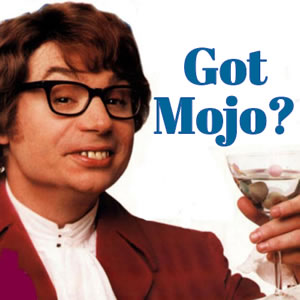After twenty years of travel obsession, Ben Holbrook signs up to the London School of Journalism’s travel writing course – here’s the inside scoop on his bizarre but brilliant experience.
Sitting at a bar drinking ice-cold San Miguel, a suitcase-sized screen showed lions ripping deer to pieces on National Geographic TV. I scribbled notes in a Moleskine diary and considered how I would introduce myself to my new classmates. With only ten minutes to go until my first class, my hands were shaking and stuck to the bottle. My writing was incomprehensible. Of course I had some writing experience, but I’d never been published in the travel pages. I ordered another beer and watched the tigers as a chill took over every inch of my body – what had I let myself in for?
Doing what you love most, all the time…
One of the main things that attracted me to the LSJ was its teachers. They have all made a living from the travel journalism industry and are proof that it is possible.
~Paul Gogarty
My group was made up of only six students, none of whom had any significant writing experience. Travel writer veteran, Paul Gogarty, taught us for the first four weeks of the six-week course. He wore bright pink shirts and rainbow-striped socks, with a pair of Woody Alan style glasses. His greying hair and weathered skin left us with no uncertainties that this man had seen it all.
Paul’s teaching style was direct and challenging, or as he put it: a taste of the editor’s wrath.
His passion for his craft was obvious but he made it perfectly clear that this career is not for everyone. “Money. Money has always been tight in the world of travel journalism, but it’s never been tighter than it is now. Yes it’s nice to travel the world at the expense of someone else, but even if you’re a well-known travel writer you’ll still struggle to make ends meet”.
Great, I thought, that’s just what I needed to hear. “But surely it’s worth the sacrifice?”
“If you’re willing to work really hard; if you really do want to dedicate your life to seeing the world, then travel writing is the best way to do it. But you have to be able to write well, and you have to be a hustler. Nobody is going commission you just for the fun of it; you’ve got to prove yourself.”
Every class started in the same way. We’d read out our stand firsts (the by-line of our intended travel stories) and Paul would say: “Thing is, that’s not a travel story. It’s been done before and it’s boring. Why you? Why now? Why should I put this in my travel pages?”
It wasn’t that he was being negative; he was just trying to teach us how a commissioning editor would respond.
It worked well and, slowly but surely, we began to come up with better angles, better ‘hooks’. “Now you’ve got it. You’re inspiring me to find out more. It’s clear why you are the best person to write this story, and it’s clear why I should include it in my travel pages.”
The last two lessons were taught by Duncan Craig and Mike Carter. Duncan was a young man who had been commissioning editor at The Express. He taught us how to pitch our ideas to the papers and more importantly, how not to pitch to them.
We left the classroom with our brains melting out of our ears like chilli con carne. Everything he said contradicted Paul’s advice. But it showed that the ‘travel journalism industry’ is made up of many people, with many different ideas of what’s good, what’s right and what sells.
Similarly, Mike Carter, a sub editor at The Observer, talked more about writing travel books and gave us some actionable writing advice. “Don’t turn into a travel writing cliché. People start using funny words when they are writing about travel. Write as you would normally talk in the real world, it’s not an ‘eatery’, it’s a cafe. Don’t start your stories with: As the plane came into land the city was lit up like a Christmas tree. You can start your story anywhere you want it doesn’t have to be right at the beginning, at the airport or on the plane.”
In effect, Mike gave us the confidence to write simply and elegantly, without relying on big words and over-the-top story lines. “I’m currently walking fourteen miles every morning to work,” he boasted, “it’s amazing the things I’ve seen in my home city that I’ve never noticed before. It’s going to make a great book!”
Reading and writing with the lions
We would be challenged to discuss ‘great travel writing’ in the class. We’d read a couple of paragraphs and then explain why it was so amazing. Paul would react: “I think it’s formulaic and boring. He’s not showing, he’s telling!” Luckily, I chose Holidays in Hell by P.J. O’Rourke – one of Paul’s favourite writers. There were also two writing assignments, a 500-word piece about a recent trip and the final 1000-word masterpiece that we would be graded on (and hope to have published). Paul seemed a little more encouraging at this point, although I did get a few ‘cut, cut, cut – less is more’ type comments.
Leaving the pack
Everything is going digital and budgets are being cut. But we also discussed how this has opened up new money-making avenues. It is still possible; you just have to think of the bigger picture. I realised that I do have what it takes to write great travel stories (I got an A- for my efforts), and was offered some actionable tips to help improve it.
In fact, for anyone interested in any kind of writing, I would totally recommend attending a travel writing course. It offers the chance to share your work and to hear what other writers think. In my humble opinion, constructive criticism is the only way to improve your writing, and that’s what writing courses are all about.
~ Ben
Have you attended a travel writing course? Share your experience!





